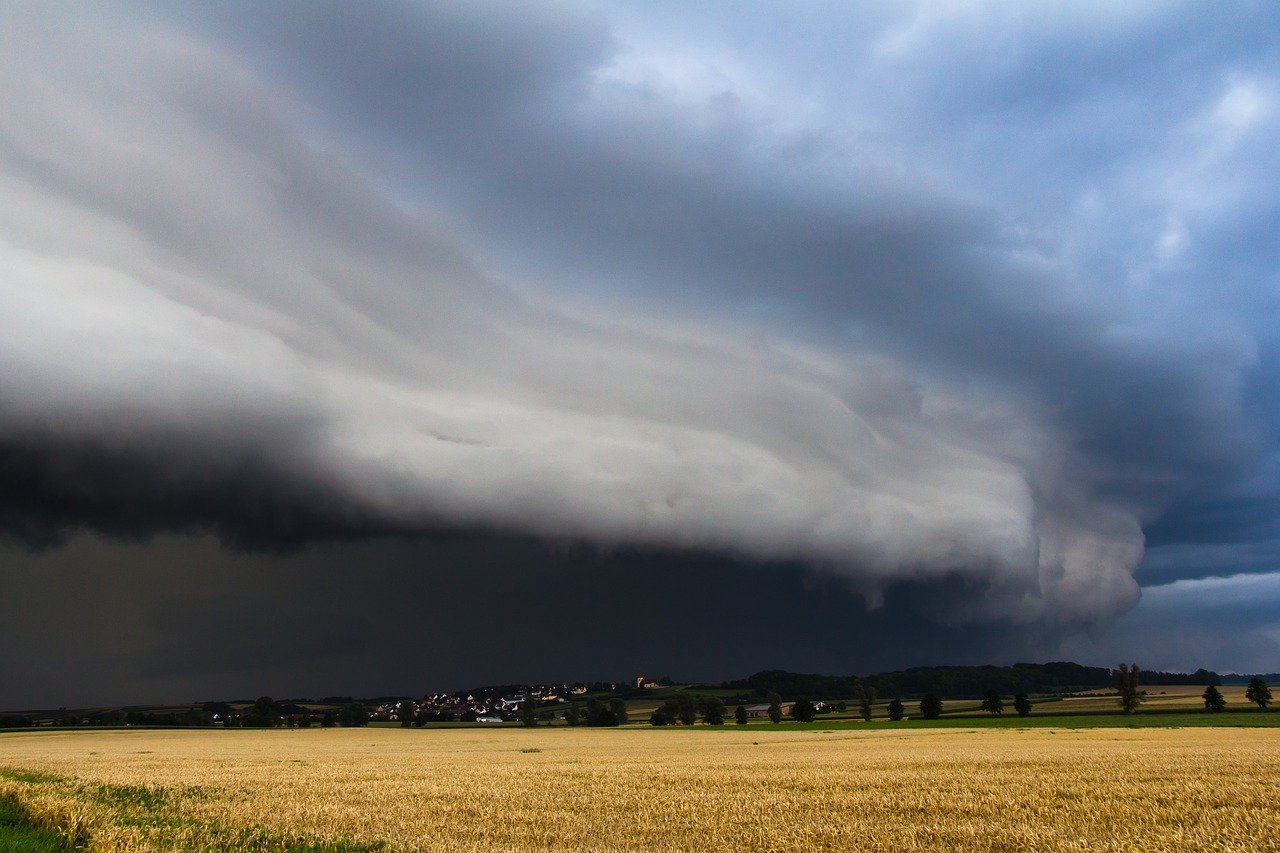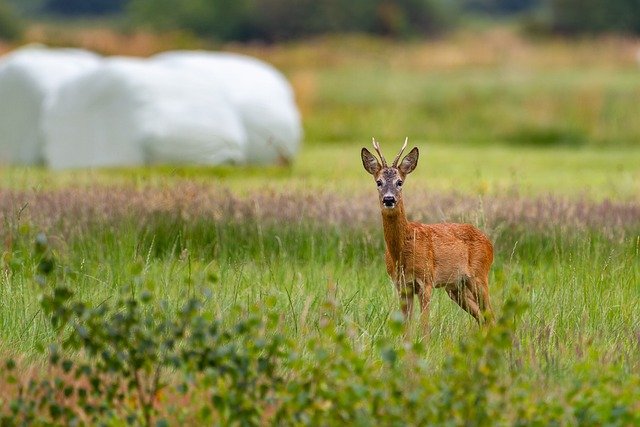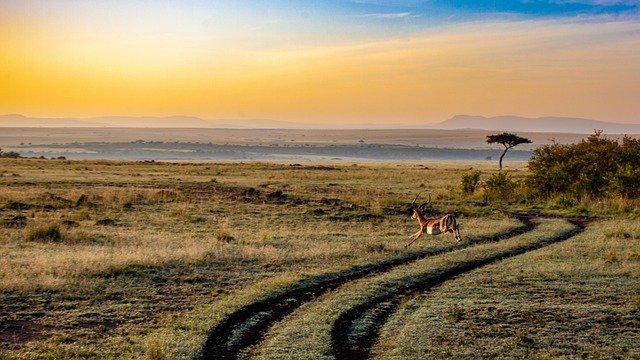
Investing wisely is an essential part of building a successful financial future. While traditional investment options like stocks and bonds are popular choices, savvy investors are always on the lookout for unique opportunities that can offer both financial returns and diversification. One such option to consider is investing in hunting land.
Investing in hunting land provides a unique set of advantages that can help diversify your investment portfolio. In this article, we will explore the potential of hunting land as a strategic investment option. We will discuss the benefits of investing in hunting land and how it can help diversify your portfolio.
Key Takeaways:
- Diversifying your investment portfolio is crucial for long-term financial success.
- Investing in hunting land offers unique financial returns and benefits beyond traditional assets.
- Factors such as location, accessibility, regulations, and potential returns should be considered when evaluating hunting land investment opportunities.
- Hunting land investments can generate income through leasing for hunting rights, timber sales, and recreational activities.
- Owning hunting land provides personal recreational opportunities, tax advantages, and helps conserve natural habitats.
Factors to Consider When Investing in Hunting Land

Before exploring the potential of hunting land as an investment, it is essential to consider several key factors. Evaluating these factors will help you make informed decisions and maximize the returns on your investment in hunting land.
1. Location
The location of the hunting land plays a crucial role in its investment potential. Consider factors such as proximity to urban areas, accessibility, and the presence of wildlife populations. Land located in areas with a strong hunting culture and a diverse range of game species can offer greater value.
2. Accessibility
Investing in hunting land that is easily accessible is important for its usability and future development potential. Look for properties with well-maintained roads and nearby amenities, such as airports and lodges, that enhance accessibility and convenience for both recreational use and potential buyers.
3. Regulations and Restrictions
Understanding the hunting regulations and restrictions in the area where you plan to invest is crucial. Each state and region may have different rules regarding hunting seasons, bag limits, and licensing requirements. Make sure to familiarize yourself with these regulations to ensure compliance and avoid any potential legal issues.
4. Potential Returns
Assessing the potential returns on your investment in hunting land is an important aspect of the decision-making process. Consider the income-generating opportunities, such as leasing hunting rights, timber sales, or offering recreational activities. Research the historical trends and market conditions to gain insights into the potential appreciation and long-term returns on the property.
“Before investing in hunting land, thoroughly evaluate the location, accessibility, regulations, and potential returns to maximize your investment.”
By carefully evaluating these factors, you can make informed decisions when investing in hunting land. Doing thorough due diligence and seeking professional advice will help you identify properties with the greatest potential for financial returns and recreational enjoyment.
Potential Returns on Hunting Land Investments

Investors are always eager to understand the potential returns of their investments. When it comes to hunting land, there are various avenues through which it can generate income and contribute to your financial goals.
Leasing for Hunting Rights
A common way to generate income from hunting land is by leasing it to hunters who are looking for a place to pursue their passion. By granting hunting rights to individuals or hunting clubs, you can earn a steady rental income on an annual or seasonal basis.
Timber Sales
Hunting land often comes with valuable timber resources. One way to generate returns is by strategically harvesting and selling timber. Proper forest management can ensure sustainable timber production, allowing you to earn income from periodic timber sales.
Recreational Activities
Hunting land can also be utilized for various recreational activities, such as camping, hiking, birdwatching, and wildlife photography. By offering access to these activities, you can attract visitors who are willing to pay for a memorable outdoor experience.
Long-Term Appreciation
Aside from the income-generating potential, hunting land investments can also appreciate in value over time. As the demand for outdoor recreational opportunities and conservation increases, well-located hunting land can see significant appreciation in its market value.
It’s important to note that the potential returns on hunting land investments can vary depending on factors such as location, property size, natural resources, and market conditions. Conducting thorough research and consulting with experts can help you make informed decisions and optimize the returns on your hunting land investment.
Advantages of Investing in Hunting Land

Investing in hunting land offers numerous advantages that go beyond potential financial returns. Let’s explore the benefits of owning hunting land and how it can be a valuable addition to your investment portfolio.
1. Personal Recreational Opportunities
Owning hunting land provides you with the opportunity to enjoy personal recreational activities such as hunting, fishing, and camping. It allows you to connect with nature, unwind, and create lasting memories with family and friends.
2. Tax Advantages
Investing in hunting land can offer tax advantages that can help optimize your overall financial plan. Depending on your location, you may be eligible for tax deductions on property taxes, management expenses, and conservation efforts.
3. Conservation of Natural Habitats
By investing in hunting land, you contribute to the conservation of natural habitats and wildlife. Owning and managing hunting land allows you to actively participate in environmental stewardship, preserving the natural beauty of the land for future generations.
Investing in hunting land not only provides potential financial gains but also allows you to enjoy personal recreational activities, benefit from tax advantages, and contribute to the conservation of natural habitats.
To further illustrate the advantages of investing in hunting land, let’s take a look at a comparative analysis of hunting land investments versus other traditional investment options:
| Advantages | Hunting Land | Stocks | Real Estate | Bonds |
|---|---|---|---|---|
| Diversification | Includes land and natural resources | Allocation across industries | Physical property | Fixed income |
| Tax Benefits | Possible deductions | Capital gains tax | Depreciation, mortgage interest | Tax-exempt municipal bonds |
| Hedge Against Inflation | Physical asset value appreciation | Inflation can erode stock value | Rental income, property value | Fixed interest rates |
| Recreational Use | Hunting, fishing, camping | N/A | N/A | N/A |
As shown in the table above, investing in hunting land provides unique advantages in terms of diversification, tax benefits, hedge against inflation, and recreational use. These advantages make hunting land a compelling investment option that offers a well-rounded portfolio addition.
Now that we’ve explored the advantages, let’s dive into the risks and challenges associated with investing in hunting land in the next section.
Risks and Challenges of Investing in Hunting Land
Investing in hunting land can be a lucrative endeavor, but like any investment, it comes with its own set of risks and challenges. As an investor, it’s important to be aware of these factors and take them into consideration before committing your resources to this asset class.
Market Volatility
Just like the stock market, hunting land prices can fluctuate due to various economic factors. Changes in supply and demand, environmental regulations, and shifts in recreational hunting trends can all impact the value of hunting land. It’s essential to closely monitor market conditions and conduct thorough research before making any investment decisions.
Property Management
Owning hunting land requires diligent property management to ensure its long-term productivity and value. This includes maintaining the land, managing wildlife populations, and addressing any environmental concerns. Hiring experienced land managers or consulting with professionals can help navigate the complexities of property management.
Regulatory Changes
Regulatory frameworks governing hunting land can vary from state to state and can change over time. It’s crucial to stay updated with any relevant hunting laws, regulations, and permits that may impact your investment. Failure to comply with these regulations can lead to fines, legal issues, and potential loss of hunting privileges.
Environmental Concerns
Investing in hunting land means being mindful of the environmental impact of your activities. Conservation and sustainability play a vital role in ensuring the long-term health of the land and its wildlife populations. Balancing hunting activities with conservation efforts is essential to maintain the ecological balance of the property.
“Hunting land is a long-term investment that requires careful consideration of the associated risks and challenges. By staying informed and working with experienced professionals, investors can mitigate potential pitfalls and make informed decisions.”
Tips for Investing in Hunting Land
When considering investing in hunting land, it’s important to approach the opportunity with knowledge and strategy. Here are some valuable tips to help investors make informed decisions:
- Conduct thorough due diligence: Before finalizing any purchase, research the area where the hunting land is located. Understand the local regulations, zoning restrictions, and any potential environmental concerns that may affect the property’s long-term value.
- Work with experts: Seek advice from professionals who specialize in hunting land investments. Consulting with a real estate agent, land appraiser, or wildlife biologist can provide valuable insights into property selection, market trends, and potential development opportunities.
- Determine your investment goals: Clarify your objectives and what you hope to achieve by investing in hunting land. Are you primarily seeking financial returns or personal recreational opportunities? Understanding your goals will help guide your decision-making process.
- Develop a comprehensive strategy: Map out a detailed plan for managing and maximizing the potential of your hunting land investment. This may include developing wildlife habitats, establishing lease agreements for hunting rights, or exploring additional income-generating activities like timber sales or ecotourism.
“Successful investing in hunting land requires a combination of careful research, expert guidance, clear objectives, and a well-executed strategy.”
Real-Life Examples: Successful Hunting Land Investments
| Investor Name | Location | Investment Strategy | Outcome |
|---|---|---|---|
| John Smith | Montana | Purchased large hunting tract, developed wildlife habitats, and leased hunting rights. | Generated consistent income through hunting leases and witnessed property value appreciation. |
| Emily Johnson | Wisconsin | Invested in a smaller hunting property, focused on recreational use and personal enjoyment. | Enjoys personal recreational opportunities and a potential long-term appreciation of the property. |
By following these tips and learning from successful hunting land investments, you can increase your chances of making a wise investment decision. Remember, a well-researched and strategically managed hunting land investment can offer financial returns, personal enjoyment, and the opportunity to preserve natural habitats.
Case Studies: Successful Hunting Land Investments
Real-life examples can provide valuable insights and inspiration when considering investing in hunting land. The following case studies highlight successful hunting land investments, showcasing the strategies adopted, challenges overcome, and the outcomes achieved. These examples serve as practical and tangible illustrations of the potential returns and benefits associated with hunting land investments.
Case Study 1: The Oakwood Ranch
“The Oakwood Ranch” is a prime example of a successful hunting land investment. Located in the heart of Texas, this expansive hunting property spans over 2,000 acres, boasting a diverse range of wildlife and picturesque landscapes. The investor, John Anderson, recognized the value of investing in hunting land in a region with a strong reputation for hunting and outdoor activities.
Strategic investments were made to improve the property’s infrastructure, including constructing comfortable lodges and developing wildlife management programs. John also implemented a comprehensive marketing strategy, targeting hunting enthusiasts and outdoor enthusiasts alike.
Within two years, “The Oakwood Ranch” became a sought-after destination for hunting and outdoor recreational activities. The property generated significant income through hunting leases, trail rides, and guided tours. This case study demonstrates the potential for both financial returns and personal enjoyment when investing in well-managed hunting land.
Case Study 2: The Mountain View Retreat
“The Mountain View Retreat” is another successful hunting land investment that showcases the long-term appreciation potential of investing in this asset class. Situated in the scenic mountains of Colorado, this property offered investors the opportunity to capitalize on its breathtaking views and abundant wildlife.
The investor, Sarah Thompson, recognized the growing demand for outdoor recreational activities in the area and strategically purchased the property at a favorable price. Sarah collaborated with local environmental experts to implement effective land management practices, ensuring the preservation of the natural habitat while maximizing its potential as a hunting and recreational destination.
Over the years, “The Mountain View Retreat” became renowned for its picturesque landscapes, attracting avid hunters and nature enthusiasts. The increasing popularity of the property allowed Sarah to generate income through hunting leases, cabin rentals, and wildlife photography workshops.
Today, the property has appreciated significantly in value, positioning Sarah with a substantial return on her investment. This case study exemplifies the value of investing in hunting land in scenic locations with high demand for outdoor activities.
These case studies demonstrate the potential of hunting land investments to deliver both financial returns and personal enjoyment. By analyzing successful examples like “The Oakwood Ranch” and “The Mountain View Retreat,” potential investors can gain valuable insights into the strategies, challenges, and outcomes associated with investing in hunting land. However, it is essential to conduct thorough research, assess the individual risk tolerance, and seek professional advice before making any investment decisions regarding hunting land.
| Case Study | Location | Investor | Strategies Adopted | Outcomes Achieved |
|---|---|---|---|---|
| 1 | The Oakwood Ranch | John Anderson | Improved infrastructure, wildlife management programs, targeted marketing | Increased property value, significant income through hunting leases and recreational activities |
| 2 | The Mountain View Retreat | Sarah Thompson | Effective land management, preservation of natural habitat, capitalizing on scenic location | Appreciation in property value, income from hunting leases, cabin rentals, and workshops |
Conclusion
In conclusion, investing in hunting land can be a wise decision for individuals seeking to diversify their investment portfolio and take advantage of the unique benefits it offers. By carefully evaluating the factors discussed throughout this article and seeking professional advice, investors can position themselves for success in this niche market.
Hunting land provides the potential for both financial returns and personal enjoyment. Through leasing hunting rights, timber sales, and recreational activities, investors can generate income streams while preserving the natural beauty of the land. Additionally, the long-term appreciation potential of hunting land offers the possibility of capital gains over time.
However, it’s important to recognize that there are risks and challenges associated with investing in hunting land. Market volatility, property management responsibilities, regulatory changes, and environmental considerations should all be carefully assessed before making any investment decisions. By staying informed and proactive, investors can mitigate potential risks and maximize the returns on their hunting land investments.
Ultimately, successful hunting land investment requires thorough due diligence, professional expertise, and a well-developed investment strategy. By understanding the advantages, risks, and tips discussed in this article, investors can make informed choices that align with their investment goals and objectives. With proper planning and execution, investing in hunting land can be a rewarding endeavor that combines financial gains with the opportunity to enjoy nature’s beauty and contribute to conservation efforts.
Also Read: Invest Smart: How to Invest in Zipline Successfully
FAQ
Is hunting land a good investment?
Yes, investing in hunting land can be a strategic option to diversify your portfolio and capitalize on its potential benefits.
What factors should I consider when investing in hunting land?
When evaluating hunting land as an investment, important factors to consider include the location, accessibility, regulations, and potential returns.
What are the potential returns on hunting land investments?
Hunting land can generate income through leasing for hunting rights, timber sales, and recreational activities. It also has long-term appreciation potential.
What are the advantages of investing in hunting land?
Besides potential financial returns, owning hunting land offers personal recreational opportunities, tax advantages, and the ability to conserve natural habitats.
What are the risks and challenges of investing in hunting land?
Like any investment, hunting land has risks and challenges, including market volatility, property management, regulatory changes, and environmental concerns.
What tips can you provide for investing in hunting land?
Our tips for investing in hunting land include conducting thorough due diligence, working with experts, determining investment goals, and developing a comprehensive strategy.
Can you provide some case studies of successful hunting land investments?
Yes, we showcase successful hunting land investments, highlighting strategies used, challenges overcome, and the outcomes achieved, providing valuable insights and inspiration.
What is the conclusion regarding investing in hunting land?
In conclusion, hunting land can be a good investment for diversifying portfolios and capitalizing on its benefits. However, thorough evaluation and professional advice are essential for making informed investment decisions.
